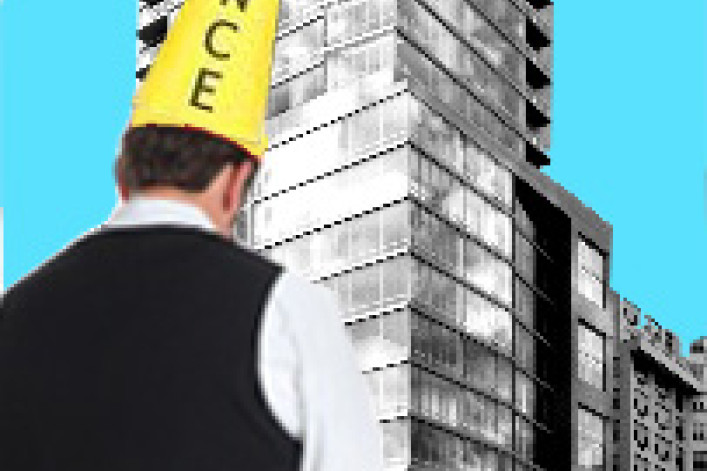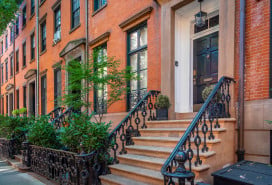The Board Room: Dealing with problem condo owners (Part 1)...Runaway renovations, condo "hotels," and home businesses

Whether you are a board member in a co-op or in a condo, there is a good chance you will someday be called on to deal with an owner behaving badly. Condo boards, however, have significantly fewer remedial powers at their disposal than co-ops, which can terminate a proprietary lease and evict (or merely threaten to) a shareholder who engages in objectionable conduct.
Condo boards lack that velvet glove.
"Unlike tenant/shareholders who live in co-ops and are subject to the terms and conditions of a proprietary lease, those who live in condominiums own their units and, in the absence of a foreclosure or enforcement of a money judgment, can't be stripped of their ownership rights,” explains co-op and condo attorney Robert Braverman of Braverman & Associates. “Condo boards are not landlords who can wield the sword of potential lease termination. They are constrained to whatever valid enforcement measures are set forth in their association’s governing documents, including fines and injunctive relief."
In most instances, a proactive board, along with its managing agent and counsel, can keep things under control and adequately address objectionable conduct related issues. Tactics vary according to the problem at hand.
Today, Braverman explains what can condo boards can do about apartment "hotels," home-based businesses and unauthorized renovations. Next month: Hoarders, renters, and neighbor-vs-neighbor disputes over noise or odors.
1. Apartments used to host short-term stays
In one frequent scenario, for instance, a resort club owns the condo unit and allows its members to use it for a few days at a time.
"This type of use diminishes the residential nature of the building and presents potential security issues," says Braverman. "Some condominium bylaws expressly prohibit transient use and put restrictions on lease terms." In addition, he says, this type of use could be in violation of the New York City Zoning Resolution and/or a new state law scheduled to take effect on May 1, 2011 prohibiting short term “notel” rentals of less than thirty days.
When a board finds that an apartment is being used for transient stays, it should document the “turn-over rate”, ascertain exactly who is running the business, how they are running the business, whether they are advertising and what measures are being taken by the offending unit owner to oversee the individuals that are occupying the unit(s) on a short term basis.
"If given sufficient evidence, courts will enjoin the improper transient use of a condominium unit," says Braverman.
2. A resident is running a business out of the apartment
While most condominium governing documents (and the New York City Zoning Resolution) allow home office occupations to be conducted from residential units, there are times when the line is crossed. For example, a telemarketing company that employs several people will not pass muster; nor will a printing business or any other concern that uses heavy machinery and/or chemical processes.
Buildings that have doormen, lobby attendants and concierge service are less likely to encounter this type of problem because there is a greater ability to monitor who is coming into and out of the building. In less staffed buildings, a board may be need to do a greater amount of investigatory work on its own.
Either way, documentation corroborating the improper use should be generated and, once there is sufficient proof, the board or managing agent should send the unit owner a letter requesting that the conduct cease. If that does not work, engage a lawyer to enforce the condo association’s rights and remedies.
3. A condo owner makes alterations to the apartments that are either banned by the alteration agreement or didn't receive board approval.
Having a comprehensive, up to date alteration agreement is an integral part of any well run residential condominium (see The 12-Step Alteration Agreement). However, says Braverman, "Even when all of the i's are dotted and t's are crossed, there are occasions when people will stray from the plans they submitted to the board, or attempt to sneak one by.”
Unauthorized alterations, if extensive, can harm the structural integrity of the building, compromise its systems and jeopardize the health and safety of building occupants.
Most alteration agreements give the board the right to stop any job if it believes that the alteration is not being performed as approved, or if the work is causing damage to the building or to other units.
Likewise, the alteration agreement should permit the board the ability to inspect the work and unit upon reasonable notice to the unit owner. The condominium’s by-laws and the New York City Administrative Code give boards certain rights of access as well.
"In the event a suspicion arises regarding non-permitted alterations, a written request for access should be made immediately," says Braverman. "If access is not provided, the matter should be turned over to counsel."
The board may be able to obtain a court order to stop the renovation if significant work is being performed that is either not approved and/or not being carried out in a good and workmanlike manner.
Robert Braverman, Esq., is the managing partner of Braverman & Associates, specializing in the representation of New York City co-op and condominium boards. Read more of his legal advice in The Board Room.


























